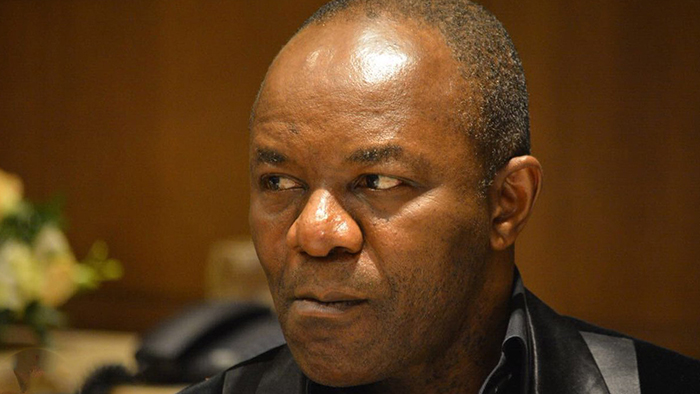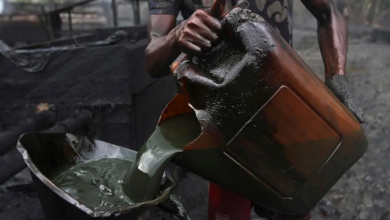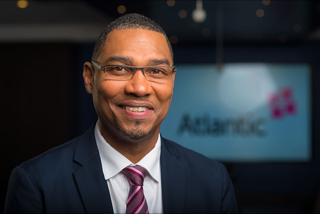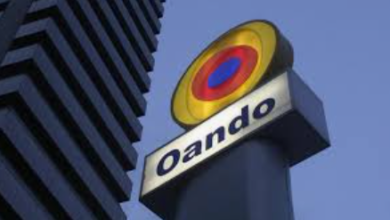Again, stakeholders warn FG, oil firms on crisis in Ogoni

The Minister of State for Pretroleum Resources Emmanuel Ibe Kachikwu PHOTO: TWITTER/NNPC
Again, stakeholders warn FG, oil firms on crisis in Ogoni
- List conditions for trouble-free exploration
- Official denies Shell’s plan to resume operations
The Federal Government could ignite a crisis, if its planned resumption of oil exploration in Ogoniland goes ahead without the resolution of key issues.The warning by stakeholders in the Niger Delta is coming on the heels of last weekend’s meeting between the leadership of the Movement for the Survival of the Ogoni People (MOSOP) and the Minister of State for Petroleum Resources, Dr. Ibe Kachikwu. The meeting had sought to find solutions to the crisis in Ogoniland.
Shell Petroleum Development Company (SPDC) was forced to stop exploration and leave Ogoniland in 1993, following an upheaval that caused the death of several Ogoni persons.The President of the Ijaw Youth Council (IYC), Eric Omare, told The Guardian that the meeting proves the Federal Government cares nothing about the tragic experiences the Ogoni people have gone through, including the murder of Ken Saro- Wiwa and other prominent Ogoni activists.
“Government has not learnt anything. What this means is that it values oil more than the Ogoni people and their lives. They are yet to clean the environment and they are talking about the resumption of oil production. I don’t think they will have an environment conducive to oil exploration in Ogoni,” said Omare.
South-South Zonal Director, Civil Liberty Organisation, Steven Obodoekwe, said since government and the oil companies have not shown commitment to cleaning up the devastated Ogoni environment, their desperation to resume oil production therefore amounts to callousness and “fresh corporate terrorism.”
The ideal thing would have been for the government to ensure the environment is completely restored before contemplating renewed exploration in the area, stressed Obodoekwe.A Shell spokesman, who pleaded anonymity, told The Guardian that though the company’s lease for Oil Mining Leases (OML11) has been renewed, it does not cover the over 30 Ogoni oilfields.He explained that contrary to the allegation that Shell wants to return to Ogoni through the backdoor, the company which was forced out of Ogoni in 1993 following an uprising does not intend to resume oil production. Shell’s leases for OML 11 was expected to expire by June 2019.
There has been growing tension in Ogoni since the National Petroleum Investment Management Services (NAPIMS) wrote to Shell last year that it had given preliminary approval to a RoboMichael Limited which had expressed interest in obtaining licensing rights of Ogoni oilfields. It was learnt that Shell had already given its approval to RoboMichael.
The endorsement of RoboMichael Limited by NAPIMS and Supreme Council of Ogoni Traditional Rulers respectively had caused MOSOP and other groups to allege that RoboMichael was Shell’s proxy, an allegation which the oil major has denied.
Amnesty International’s Business and Human Rights Researcher, Mark Dummett, regretted failure by the government and Shell to implement recommendations by the United Nations Environment Programme (UNEP).
“Following its groundbreaking survey of 2011, UNEP clearly laid out the path by which the environment of Ogoniland could be made free of the contamination that has devastated it for so long. The government has created the Hydrocarbon Pollution Remediation Project (HYPREP) to organise the cleanup, but little has so far been achieved, and there is no transparency over its plans,” Amnesty’s Rights researcher Dummett said.
MOSOP had told Kachikwu it was not opposed to discussions on the resumption of oil production, but that the consent of the people must first be obtained.It stated “unequivocally” that the contentious issue involves three main parties – the Federal Government, the oil industry led by Shell, and the Ogoni people. “Any attempt to deal with any aspect of the issue must necessarily involve the three principal actors, as stakeholders in a joint project of finding a lasting solution to the Ogoni crisis,” it said.
MOSOP, therefore, warned it would “resist the present attempt by the Federal Government and Shell Petroleum Development Company of Nigeria to arbitrarily award the Ogoni fields in Oil Mining Lease (OML) 11 without consultation with the Ogoni community.”
The President of the movement, Legborsi Pyagbara, stressed that besides the environmental damage that attended Shell’s operations, Ogoni people are distressed about their lack of participation in the value chain of the oil industry, including employment; the absence of well-defined Community Benefit Sharing Agreements (CBAs); and a sustainable development process that recognises the rights of the people to Free, Prior and Informed Consent (FPIC), in accordance with global best practices.
Pyagbara described attempts in the last few years to use money to “buy support” from the people as “condemnable” and “reprehensible”. Such move, he said, is “against the spirit of transparency and accountability required in the extractive sector.”He cautioned: “Societies the world over have met this challenge through deliberate and clear actions, and the Federal Government should urgently look in this direction. For, if the Nigerian government fails to protect the Ogoni people, it certainly cannot protect itself. History is replete with the ruins of societies that were built on the sort of injustices that have pervaded Ogoniland over the years.”
The MOSOP President urged the government to set up a better framework of engagement under which the parties involved would have a level-playing field for discussions on the future of oil production in Ogoniland.
According to him, Nigeria will be judged, not by its false claims about developments in Ogoniland, but by how it actually protects the weak, the vulnerable and those whose lives have been imperiled by reckless oil exploration of multinationals.Pyagbara disclosed that the Ogoni people, at the behest of MOSOP, have set up a strategic committee representing the various interests in Ogoni, headed by Prof. Ben Naanen, an economic historian and resource governance expert. This will develop a template to harmonise existing positions and guide the people in engagements with the Federal Government and the oil industry. Once the people adopt the template, Ogoniland will be ready for engagement and consultation on oil exploration, he said.
Meanwhile, youths in the Niger Delta have been urged to create an enabling business environment to attract investors to the region.SPDC’s General Manager, External Relations and Social Investment, Mr. Igo Weli, disclosed this while delivering a public lecture organised by the Rivers State University’s Centre of Excellence in Marine Engineering and Offshore Technology.
Speaking on the theme, ‘An enabling Business Environment – Implication for Future Careers in Oil and Gas Industry’, Weli noted that unlike in past years, many companies have left the region due to its unfriendly business atmosphere.He stressed the need for proper conflict management to reverse the situation.
Source: https://guardian.ng





